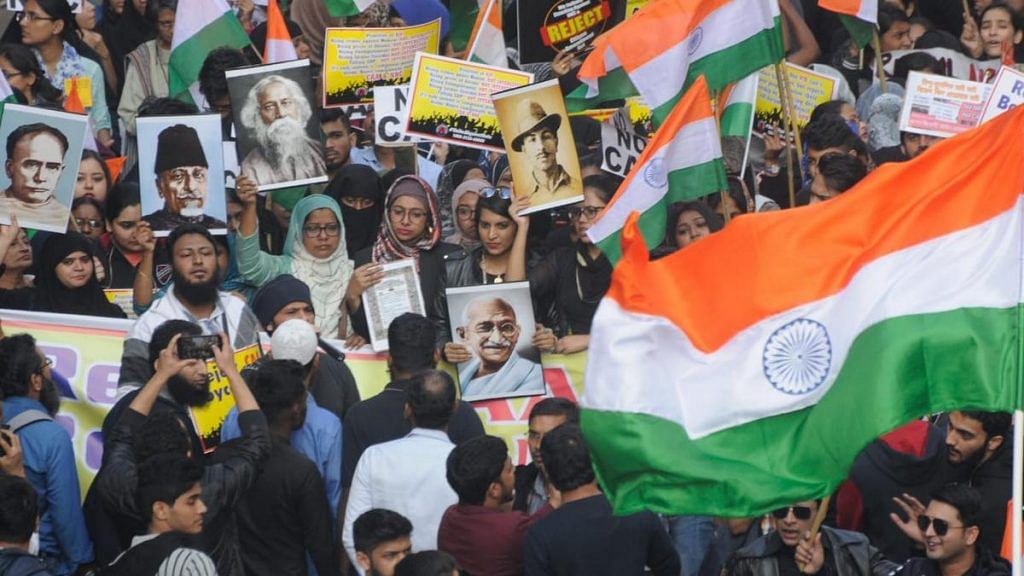In the late 1980s, noted anthropologist T.N. Madan had made a provocative statement. He said secularism was unsuitable for India as a political ideology, as a ‘generally shared credo of life’, ‘as a basis for state action’, and ‘as a blueprint for the foreseeable future’. He was convinced that secularism ‘needs to be put in its place’. As protests against the Citizenship (Amendment) Act rage across India, Madan’s views must be re-examined – particularly because the crisis of secular politics seems to have reached its nadir. By arguing against secularism, Madan was not building a case for the ‘Hindu Rashtra’, but objecting to the ‘foreignness’ of the idea of secularism. It is also important to re-open this debate especially because of the lopsided manner in which Indian intellectuals are using the secularism argument to challenge the CAA.
These liberal intellectuals have exhibited a surprising lack of empathy for the people the Act is meant to benefit. Instead, from the beginning, the protests have been about who has been excluded and about labelling the law ‘anti-Muslim’.
Also read: For the first time, India is seeing secularism go from a top-down decree to a street slogan
Failure of India’s conscience-keepers
Unlike some scholars who are convinced that we are now living in a ‘fascist’ regime, I don’t attribute the failure of secular politics solely to the incumbent BJP government or its political ideology, but to its peculiar lopsided manifestation in India. Political parties across the world are driven not necessarily by goals of justice and fairness but by their immediate political gains. My focus is on the role of intellectuals, who are supposed to be the conscience keepers of any society.
The ongoing brouhaha surrounding the CAA, the National Register of Citizens and now the National Population Register, however, has demonstrated most starkly that a logical and non-partisan approach of deliberation is clearly not an option favoured by our intellectual community. Routine protests often staged by misinformed students and common people have become the norm. There is no space for critical dialogue from any end. The violent clampdown on these anti-CAA protests by an insecure Narendra Modi government has only aggravated this kind of unthinking illogical knee-jerk reaction.
While dissenting against the exclusion of Muslims is a legitimate position; at no point of time did the protesters’ discourse acknowledge that the lives of Hindus, Sikhs, Buddhists, Jains and Christians, who for no fault of theirs were left in the wrong side of the border during Partition, mattered. The non-acknowledgement of this position, one may argue, is as politically unethical as that of the Modi government’s, which critics allege has deliberately left out the Muslims.
By not acknowledging the human rights of those who suffered most due to their religious identity, and instead focusing on the imagined persecution of legal Indian Muslim citizens, the intellectual community has shown itself in poor light. More importantly, it has actually been culpable in strengthening the virulent elements of Hindutva even more. The Sangh Parivar’s age-old projection of intellectuals as being ‘anti-Hindu’ and ‘anti-India’ stands legitimised and has now been clearly accepted by the people at large.
Also read: Why electorally secure Modi govt cracked down on CAA protesters so brutally
Being labelled an ‘urban Nazi’
In the midst of this chaos, I decided to sign a petition a few days back in favour of the CAA, and became one of the 1,100 academicians who supported the Act. There have been numerous articles written on the CAA, and I will not go into the details of why I supported the Act. Suffice it to say that born to Bengali Hindu refugee parents myself and having grown up in Assam, I believe that the Act will provide some solace to those who it targets without necessarily being anti-secular.
Overnight, I discovered that I had been labelled as an ‘urban Nazi’, which I understand is a counter category to ‘urban Naxal’, which is meant for an intellectual community that is being cornered and boycotted. Apart from the fact that I felt judged and insulted by people of my own community who never bothered to reach out and find out why I had supported the CAA, I was more appalled by the ease with which they emulated the vocabulary of their nemesis.
This was especially disturbing, also because this was the same community that took their self-image of being conscientious secular citizens very seriously. People who constantly blame the government for being intolerant were denying the freedom of expression and even condemning those who do not toe their line of thought.
But perhaps that is a tall expectation in today’s polarised climate. We live in a political moment where everything that we say has to come with a disclaimer or a caveat that protects us from getting into trouble. It is a time when the intelligentsia of society has appropriated the sole monopoly on truth, decided it with certitude, with little space for any nuance.
Unless we resuscitate an idiom that resonates with a fairer and more nuanced expression of equality, true ‘secularism’ that makes sense in the Indian context will continue to evade us.
The author teaches at Azim Premji University and wrote the book titled ‘Disaster Relief and the RSS: Resurrecting ‘Religion’ through Humanitarianism’. Views expressed are personal.
